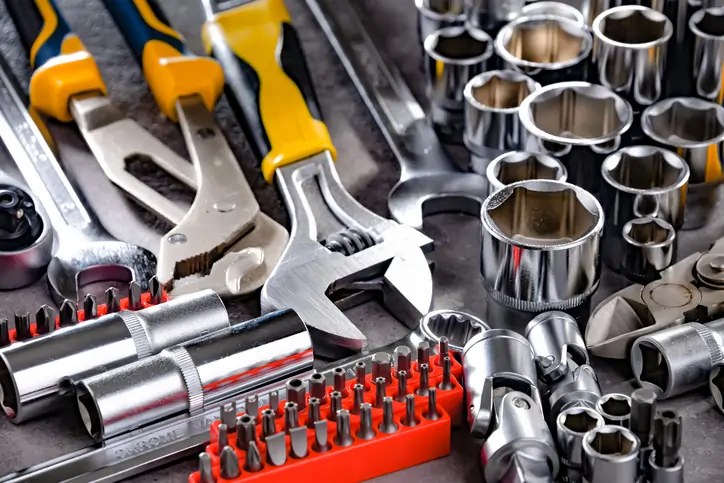
As every technician knows, having the right tools for a job can make all the difference between a smooth job and a frustrating one. Given that you can work on electrical connections, automotive, or home appliance repairs, it's important to ensure you build your kit. However, not everything can fit in there, so you'll need tools and equipment that will work almost everywhere, depending on your job.
In this guide, we'll help you narrow down. You should be able to cut through the clutter and get tools that help you build the perfect collection to maximize efficiency.
Electrical and Wiring Tools
Precision and safety aren't negotiable when it comes to electrical work. Whether you are doing installations, repairs, or troubleshooting, you'll need to ensure you have the right tools for the job.
Crimping Kit: Crimping is necessary for terminating cables to connect them to external circuits. You'll need to terminate different types of connections, so you can opt for a complete RS crimp set to get a variety of crimp terminals.
Multimeter: This is a must-have tool as you'll need it to test voltage, current, and resistance. Ensure it's digital and has several auto capabilities and a backlit display.
Voltage Tester: The voltage tester will allow you to detect live wires. You can get a non-contact one as you won't have to place it directly on wires, so it's safer.
Wire Strippers & Cutters: Strippers are crucial for removing insulation quickly and safely, while the cutter will help you ensure that the length is correct. They are often combined.
Ensure you invest in high-quality versions to increase safety and efficiency.
Essential Hand Tools for Everyday Use
While you'll need some speciality tools, there are others that will come in handy during daily tasks.
Screwdrivers (Flathead & Phillips): Get a versatile set of flathead and Phillips screwdrivers, as these will cover most tasks where you need to fasten screws. You can have both insulated versions and precision ones that can help with small electronics.
Pliers (Needle-Nose & Lineman's): You'll need pliers as they are some of the most versatile tools, so get both the needle-nosed ones for gripping small parts and the Lineman's pliers for cutting and twisting wires.
Adjustable Wrench & Socket Set: When you need to loosen or tighten nuts and bolts of different sizes, this tool will come in handy. The socket version offers more precision.
Utility Knife: A utility knife will greatly help in cutting cables, stripping insulation, and opening packages.
Tape Measure & Level: The tape measure will help make your measurements accurate, while a spirit level will ensure you keep everything aligned.
Flashlight or Headlamp: When working in areas with low light levels, a flashlight will make the work durable.
This set of tools will help you cover the most common technician tasks.
Power Tools for Increased Efficiency
For technicians, power tools aren't just about convenience. You'll need them to improve efficiency when working, as well as to help you handle tougher jobs.
Cordless Drill and Driver: This is arguably the most versatile power tool you'll need in your kit, as it can drill holes and drive screws. You can get one with adjustable settings to ensure you maximize it.
Impact Driver: If you need more power than a standard drill offers, you can get a high-torque one for fastening or loosening stubborn screws and bolts. Quite crucial in construction.
Rotary Tool (Dremel-style): A rotary tool will help you with multiple tasks like cutting, grinding, polishing, and sanding. It comes with several small components.
Heat Gun: When you need to shrink connectors or tubing, you'll need a heat gun. It will also help you strip paint and loosen adhesives.
Investing in these tools will make your work possible and significantly increase productivity and efficiency.


